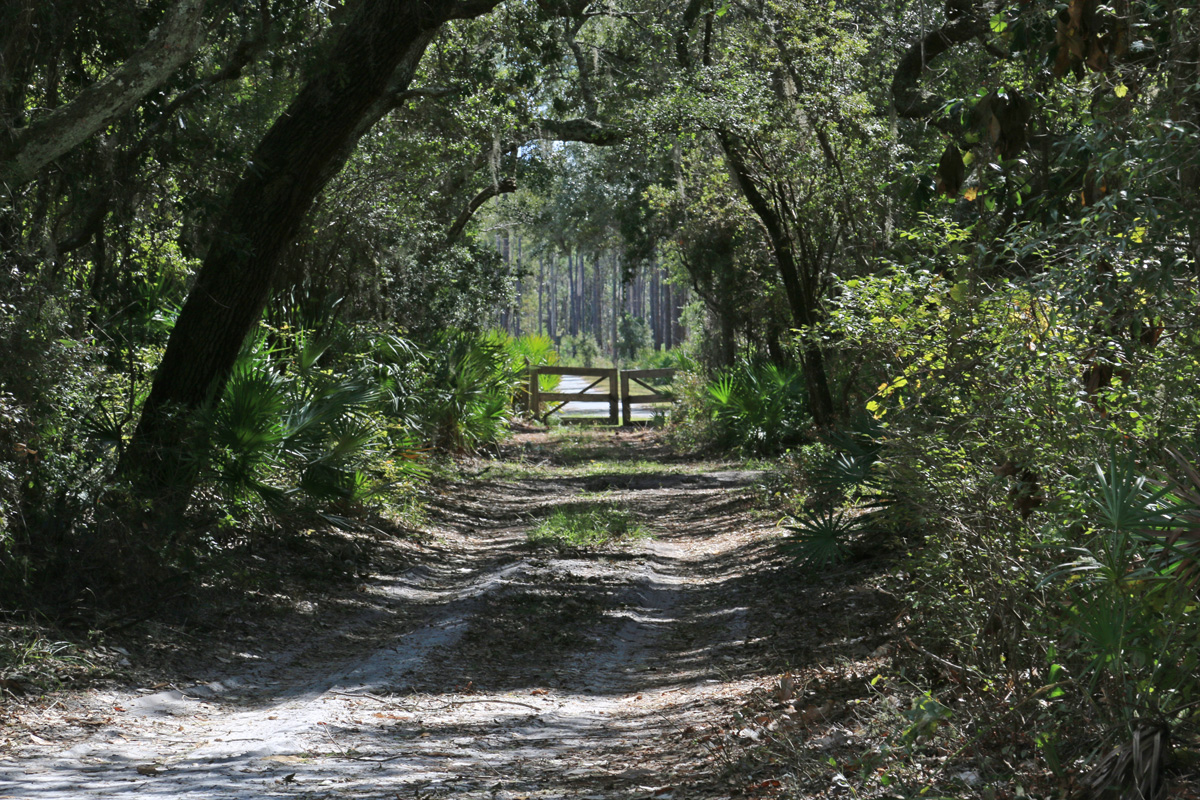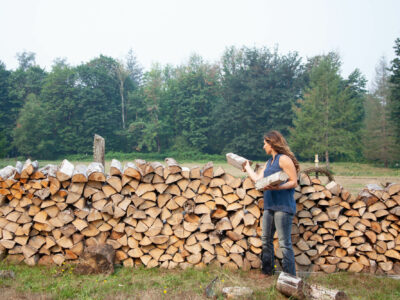If you’re like me, the first thing you think of when you hear the term “bug-out bag” is the zombie apocalypse. But I’m here to tell you there’s so much more to them than that.

Join me with Jeff from Warrior Life as he shares his thoughts on bug-out bags, what they are, and why we should all have one that’s filled with the specifics for us and our needs.
Table of Contents[Hide][Show]
About Jeff
As a lifelong student of what he calls “survival arts,” it was Jeff Anderson’s military training that led him to seek out strategies that would protect not only himself on the battlefield… but also provide for his family’s own self-reliance in any sort of disaster, crisis, or collapse.
In Jeff’s survival training, it was his service overseas and in combat missions that he was able to get a first-hand glimpse of what a city gripped in collapse and without rule of law is like for its citizens. He uses his unique experience to inject a more realistic view of what to expect in survival scenarios and provide practical solutions – even in extreme environments – for true survivalists.
Ultimately, his training and experience led him to create Warrior Life, which is fueled by more than 100 of the world’s top instructors in law enforcement, military, and civilian survival schools.
What is Warrior Life?
Jeff created Warrior Life is a means to help train people as “warriors.” Not in the sense that they’ve gone off to war, but in the sense that when an emergency happens, they are their own first responders.
Through Warrior Life, Jeff has created quick courses to help get you “warrior ready” for whatever emergency might come your way.
One of the easiest things to start your emergency preparedness journey with is a bug-out bag.
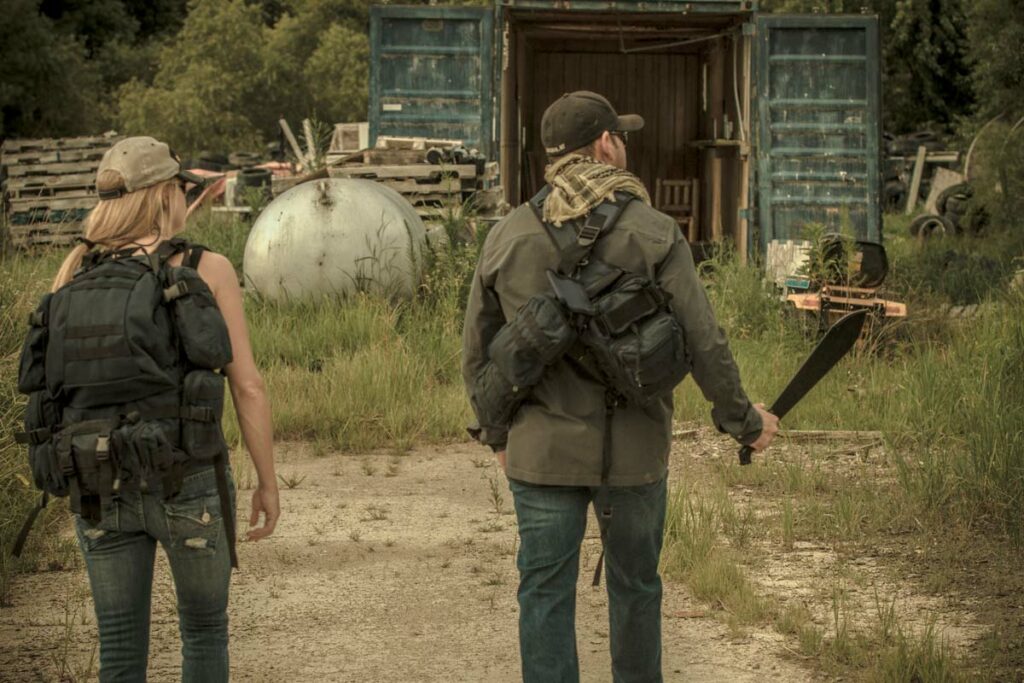
What Is a Bug Out Bag?
Simply put, it’s a mobile survival kit. If you go to FEMA, they’ll have a list of what you need in a pack. Jeff takes his bug-out bag a little bit deeper, and you can see what he recommends in a bug-out bag here.
What’s the Difference Between a Go Bag and a Bug-Out Bag?
Jeff says that a bug-out bag and a go bag are virtually the same thing. It’s a survival pack for emergency situations.
One thing Jeff does not recommend is a “get-home bag.” This is a bag designed to help you get back to your home. However, in a true emergency, getting back home may be the most dangerous thing you can do.
For this reason, Jeff says your bug-out bag belongs in your vehicle at all times.
Why Are People Making Bug-Out Bags?
I asked Jeff why he thinks more and more people are getting prepared with bug-out bags. He made some good points about how natural (and some non-natural) disasters are much more televised, especially on social media, so people are more aware of what truly takes place in an emergency situation.
Seeing some of the fallout after Hurricane Katrina hit New Orleans was a good example of how the emergency response isn’t always going to be able to take care of everyone in a timely manner.
So your best bet for not only survival, but to truly be safe and secure during an emergency is to plan ahead and be prepared for yourself and your loved ones.
Why You Should Have a Bug-Out Bag
One of the biggest mistakes people make is thinking a disaster or emergency situation won’t affect them. It’s easy to see Hawaii go up in flames or wildfires affect different parts of the United States. But many people don’t necessarily place themselves in that spot that it could happen to them.
Even in my small community, where I actually do feel very safe, we’ve realized there are situations that can occur that would cause us to need to rely on our own resources and preparedness for survival.
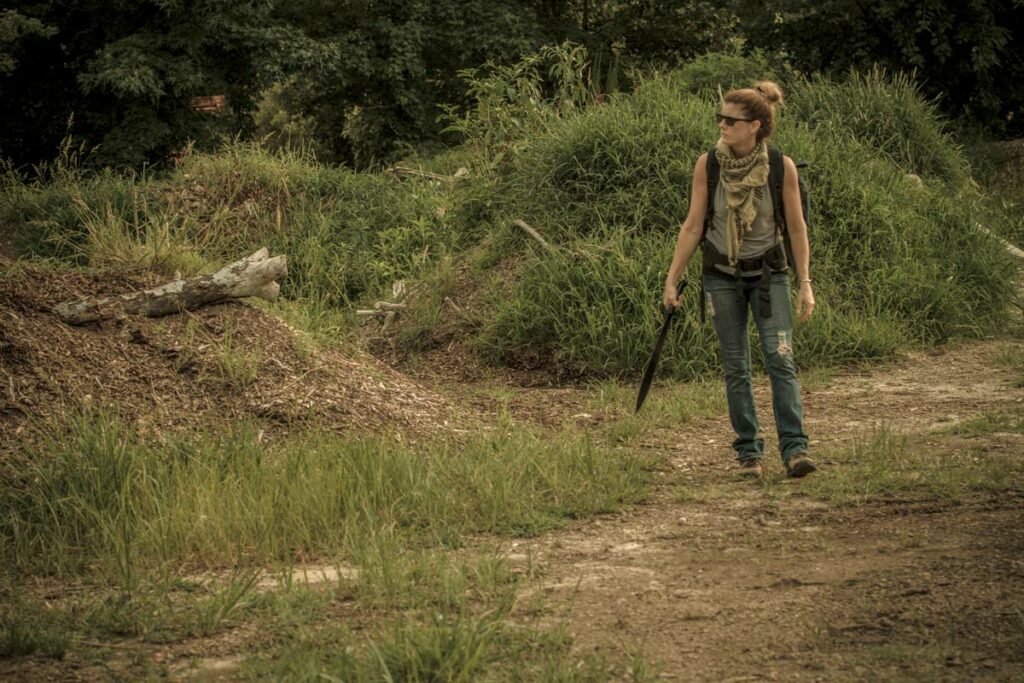
What Should Be in a Bug Out Bag?
Jeff says it really comes down to the basics of survival: water, food, shelter and security.
If you consider that you’re away from your home and resources are stressed, what would you need for survival? This will likely look different depending on your geography and the possible natural disasters or emergencies that could come your way.
Water
One mistake Jeff sees is that people pack enough water for survival. This isn’t practical if you’re needing to walk or hike with your bag on your back. Jeff’s recommendation is to have an empty 3L water bladder and a way to filter that water. Then, wherever you can scoop up water and put it in your bladder, you can boil or filter the water as needed.
Food
This is another area where Jeff sees mistakes. People are either packing heavy cans of food that will be ready to eat, or they’re purchasing MREs (Meals Ready to Eat from the Military).
Something Jeff has done is purchase a freeze-dryer in order to make and freeze-dry his own emergency meals. That way, in an emergency situation, he knows he’s able to eat good comfort meals that he knows will fuel his body.
Shelter
You may have visions of a tiny tent in your mind to create a shelter wherever you need it. But Jeff recommends a simple poncho and some bungee cords. That way, it’s fast up, fast down, lightweight and easy to handle.
The poncho can be worn if you need to walk through rainy conditions, or it can be strung up with bungees to act as a tarp or shelter from the wind.
Instead of a sleeping bag, he packs a tiny mylar sleeping bag (survival bag), and he’s used that many times while sleeping outdoors overnight.
Security
Last, but not least, on the list is security. You need to carry some means of protection with you. If you’re in a true survival situation and you have what’s needed to survive, but someone else doesn’t, you may find yourself in a situation where you need to defend yourself and your family’s bug-out bags.
This can be whatever you find yourself comfortable with. Jeff shares that in emergency or survival situations, people will be scared and stressed, they may have just lost a family member, and they’re not always going to be thinking rationally. You simply need something to help defend yourself in a confrontational situation.
Jeff says this doesn’t need to be an AR-15. It can be something as simple as a can of pepper spray. If you don’t want to carry a gun or get trained in how to properly use it, then find what you’re comfortable with and make sure that’s in the bag.
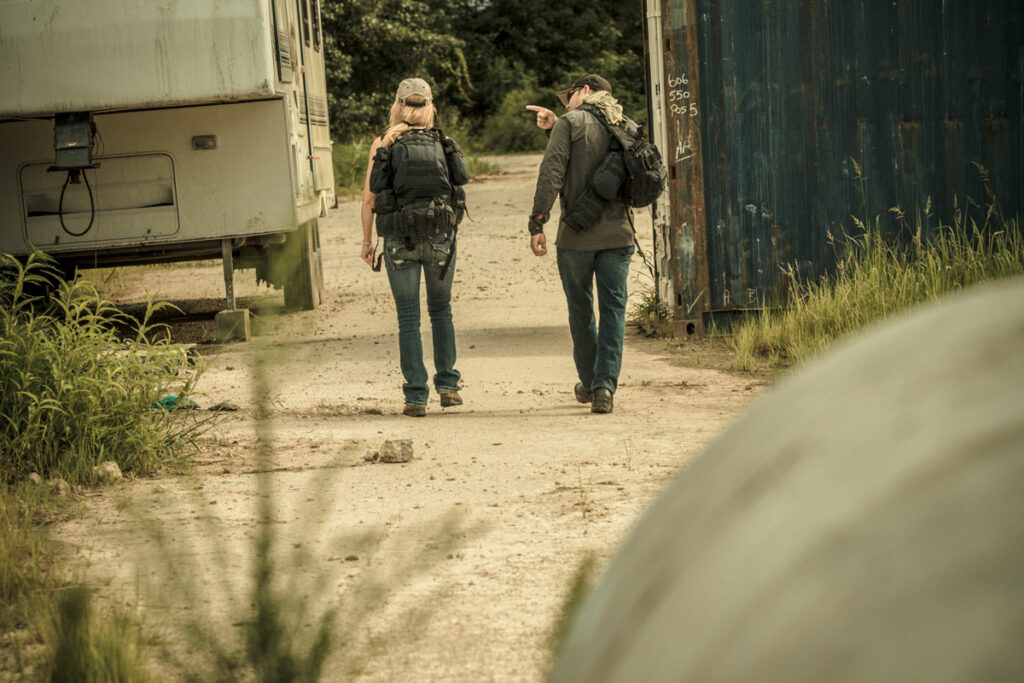
What Do People Commonly Forget to Pack in Their Bug-Out Bag?
Too much!
I asked Jeff if he sees something people commonly forget to pack in their bug-out bags, and his answer surprised me. He said he generally finds people packing too much in their bags because they’ve never really carried it around.
Test your pack out! Carry it around for a 3-5 mile walk and see how the weight feels. Then remove or add as you’re able.
Jeff actually has people who will send him photos of their survival bags, asking for his feedback. Often, he’ll see people with an axe, a large knife and a machete. You don’t need all three. Just pick one (usually the lightest and easiest to pack).
Communication
Something commonly overlooked in a bug-out bag is a way of communication. Most people who have never been through an emergency situation don’t realize there may be times when your group has to split up. If cell towers are down or electricity is shut off, you won’t be able to use your cell phone.
Jeff recommends having some two-way radios that have good reception, as well as backup batteries or a way to charge them.
Daily Necessities
This will look different for everyone, but if you take prescription medication, you’ll want to make sure to have backups in your bug-out bag.
Furthermore, think of anything else you or your family rely on on a daily/weekly basis and make sure you have a plan for how you’ll acquire those items.
This could also include something as simple as a small first-aid kit as well as cash. Remember, if electricity is out, your debit or credit card will be useless.
What NOT to Pack in a Bug-Out Bag
The biggest mistake Jeff sees when people are putting together their bug-out bag is to pack the following:
- Tents
- Sleeping Bags
- Water
All these items are so heavy and take up a lot of space, and there are many other great options that will work just as well and are small and lightweight.

How to Build a Bug-Out Bag
If you’re looking for more tips on how to build a bug-out bag and be “warrior-ready,” Jeff offers a free live training. Definitely check it out!
Where to Find Jeff & Warrior Life
- The Warrior Life Website
- Warrior Life on YouTube
- Instagram @warriorlifeready
- Facebook @warriorlifeready
Verse of the Week: Proverbs 6:6-8
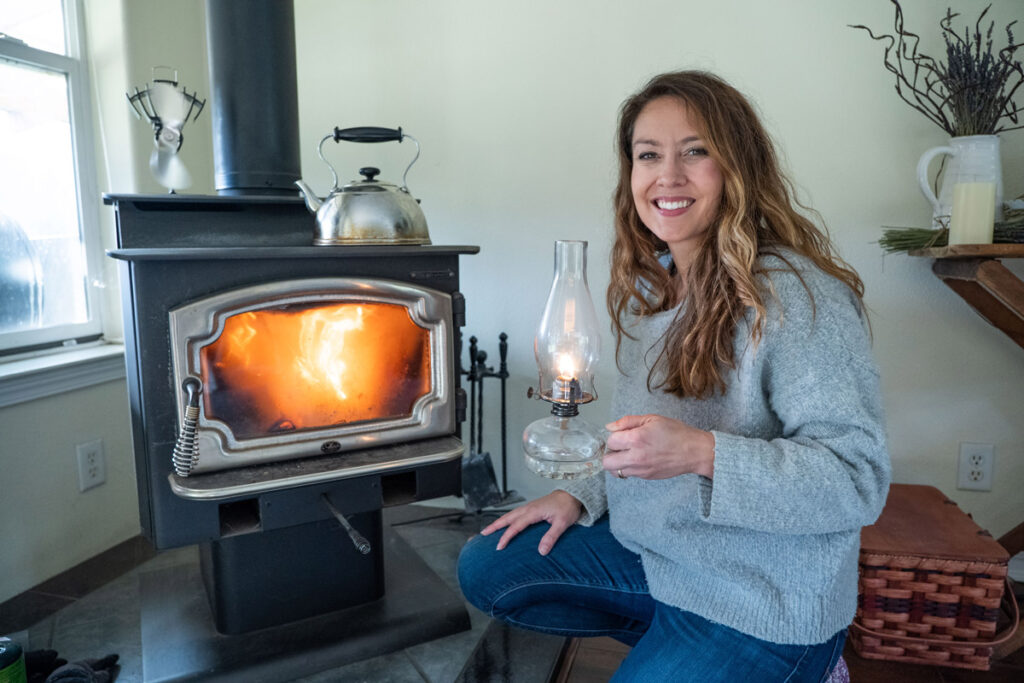
Other Posts You May Enjoy
- Staying Prepared on a Homestead
- How to Use a Generator During a Power Outage
- Hand Water Well Pump – What You Should Know
- Survival Garden
- What to Do if You Can’t Get Your Prescription Medications
- 12 Self-Sufficiency Tips from the Great Depression
- 7 Self-Sufficiency & Simple Living Lessons from the Amish
- 12 Non-Food Essentials to Always Have on Hand
[fusebox_transcript]
